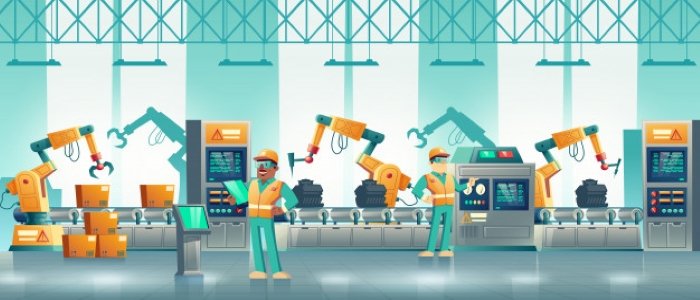ServiceNow in Manufacturing: Driving Revenue and Reducing Costs
In today’s dynamic landscape, the manufacturing industry faces a multitude of challenges. From supply chain disruptions to manual processes and unexpected factory downtime, manufacturers are under constant pressure to adapt and evolve.https://servicenowanimations.agdltd.com/manufacturing-2 enables manufacturers to streamline and automate their processes, reducing human error and improving efficiency. To stay competitive and unlock opportunities, it’s crucial for companies to drive action across the entire value chain and foster stronger connectivity between their people, processes, and systems.

How AI is Revolutionizing the Manufacturing Industry
Artificial Intelligence (AI) has emerged as a game changer for the manufacturing industry. AI is no longer just a futuristic concept; it is an active tool that manufacturers can leverage to optimize their operations. AI-driven technologies allow manufacturers to collect, analyze, and act on real-time data, enabling them to address critical issues such as predictive maintenance, quality control, and supply chain optimization.
The Importance of Connecting People, Processes, and Systems
In today’s competitive manufacturing environment, success relies heavily on how well an organization can integrate its people, processes, and systems.By connecting disparate systems and people across the value chain, manufacturers can unlock new levels of productivity and deliver exceptional experiences both internally and externally.
Unlocking Greater Efficiencies Across the Value Chain
Manufacturing companies must consider the entire value chain, from raw materials to the finished product. ServiceNow offers tools that help drive collaboration across departments, reduce costs, and increase profitability by addressing inefficiencies in the system.See full details here clubneet.
- Supply Chain Optimization: Manufacturers today face complex supply chains that are susceptible to disruptions. ServiceNow helps mitigate these risks by providing real-time visibility into supply chain activities, enabling companies to respond swiftly to changes in demand or disruptions in supply. This not only helps avoid costly delays but also strengthens customer satisfaction.
- Factory Downtime Prevention: Unexpected factory downtime can lead to significant financial losses. ServiceNow uses predictive analytics to identify potential breakdowns before they happen, minimizing downtime and ensuring continuous production. By utilizing data collected through connected devices and sensors, manufacturers can perform timely maintenance, reducing the risk of costly equipment failures.
- Automating Manual Processes: In the manufacturing industry, manual processes often result in delays, errors, and inconsistencies. ServiceNow’s platform automates these manual processes, freeing up valuable human resources for more strategic tasks. This leads to increased efficiency, reduced operational costs, and faster decision-making processes.
ServiceNow: Driving Action for Better Manufacturing Outcomes
ServiceNow plays an instrumental role in transforming the manufacturing landscape. Its innovative platform helps manufacturers:
- Improve collaboration across the value chain,
- Reduce operational costs,
- Drive revenue growth,
- Enhance product quality, and
- Deliver exceptional customer experiences.
In a world where disruptions are inevitable, manufacturers must embrace new technologies and re-imagine the way they work. With ServiceNow, they can seize opportunities, mitigate risks, and ultimately make the world work better for everyone.
Conclusion
The future of manufacturing hinges on the ability to adapt to rapid changes and seize emerging opportunities. By leveraging ServiceNow’s AI-powered solutions, manufacturers can drive efficiency, reduce costs, and create resilient operations that stand the test of time. Connecting people, processes, and systems across the value chain ensures that manufacturers are equipped to tackle disruptions and come out stronger on the other side.


